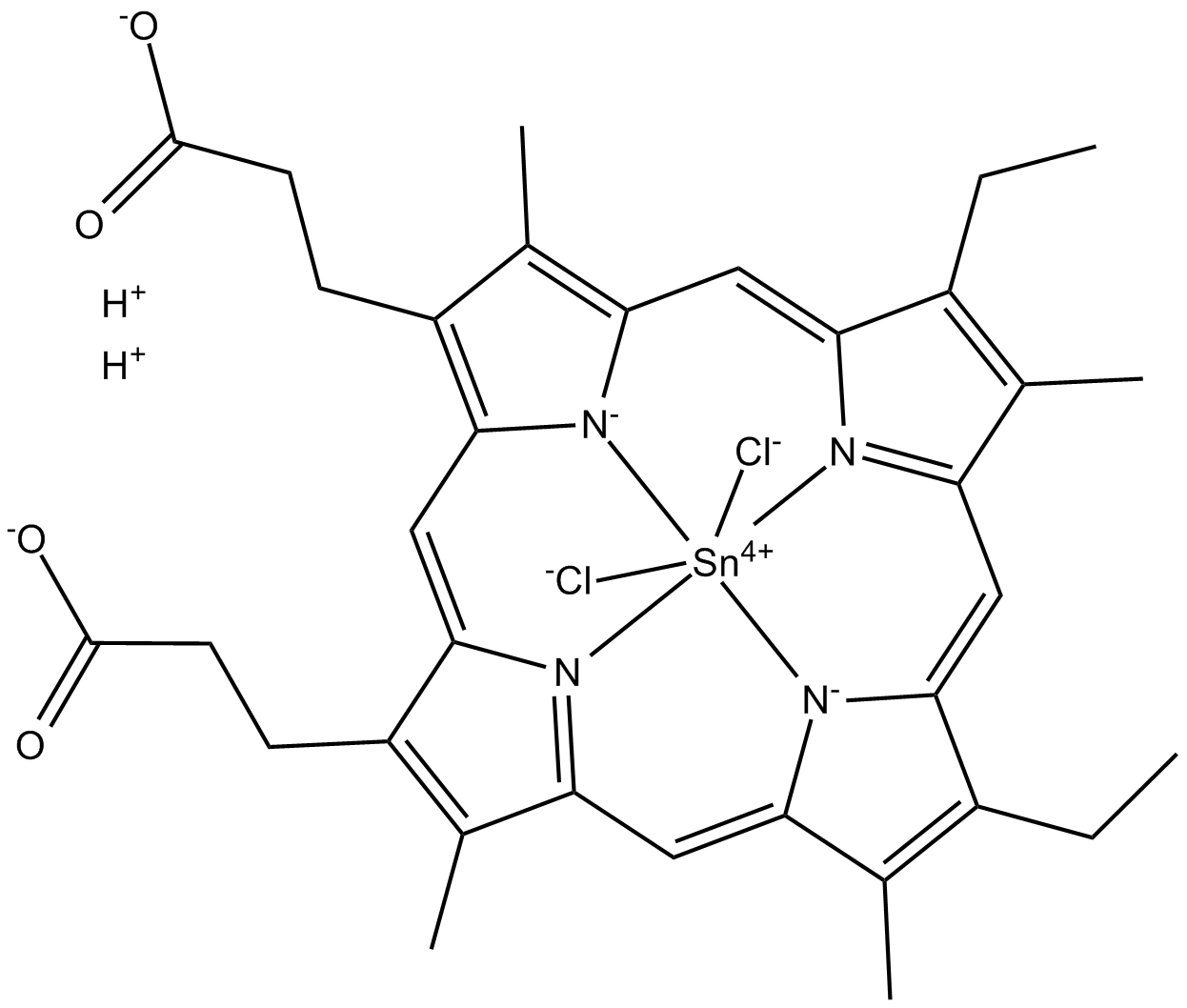Tin Mesoporphyrin IX (chloride) (Synonyms: NSC 267099,SnMP) |
| Catalog No.GC17594 |
Tin Mesoporphyrin IX (chloride) (Stannsoporfin) is a heme oxygenase (HO) inhibitor being developed for the prevention of hyperbilirubinemia in infants at risk of developing jaundice, extracted from patent WO2011103196A1.
Products are for research use only. Not for human use. We do not sell to patients.

Cas No.: 106344-20-1
Sample solution is provided at 25 µL, 10mM.
Ki = 14 nM
Tin Mesoporphyrin IX is a potent and competitive inhibitor of heme oxygenase (HO) activity.
Heme oxygenase or haem oxygenase (HO) is an enzyme catalyzing the degradation of heme. This produces biliverdin, ferrous iron, and carbon monoxide. There is limited evidence that levels of heme oxygenase are positive predictors of metabolic disease, insulin resistance, and metaflammation.
In vitro: Previous study found that Tin Mesoporphyrin IX was a potent competitive in-vitro inhibitor of enzyme activity when it was incubated with rat splenic microsomal heme oxygenase, with a Ki of 0.014 microM [1].
In vivo: Animal study showed that Tin Mesoporphyrin IX at 1 pmol/kg body wt could inhibit hepatic, renal, and splenic heme oxygenase activity in adult animals for extended periods of time. Tin Mesoporphyrin IX at 1 pmol/kg body wt also prevented the transient increase in serum bilirubin 24 h after birth in the rat neonate and significantly reduced the levels of serum bilirubin in aminolevulinic acid induced hyperbilirubinemia in the 7-day-old suckling neonate. Moreover, it was found that the tissue heme oxygenase activity decreased in both animal models of hyperbilirubinemia. Tin Mesoporphyrin IX treatment resulted in a prolonged increase in the heme saturation of hepatic tryptophan pyrrolase [1].
Clinical trial: So far, no clinical study has been conducted.
Reference:
[1] Drummond, G. S.,Galbraith, R.A.,Sardana, M.K., et al. Reduction of the C2 and C4 vinyl groups of Sn-protoporphyrin to form Sn-mesoporphyrin markedly enhances the ability of the metalloporphyrin to inhibit in vivo heme catabolism. Archives of Biochemistry and Biophysics 255(1), 64-74 (1987).
Average Rating: 5 (Based on Reviews and 17 reference(s) in Google Scholar.)
GLPBIO products are for RESEARCH USE ONLY. Please make sure your review or question is research based.
Required fields are marked with *




















